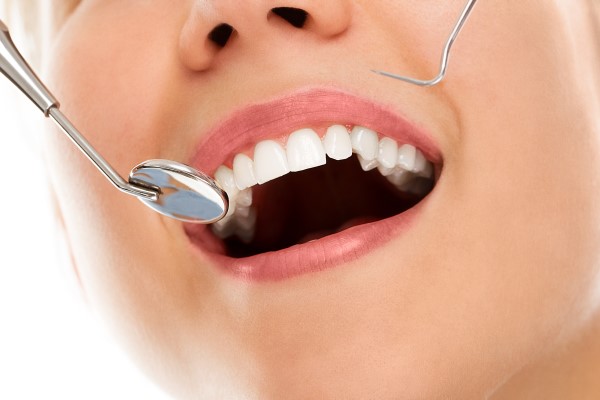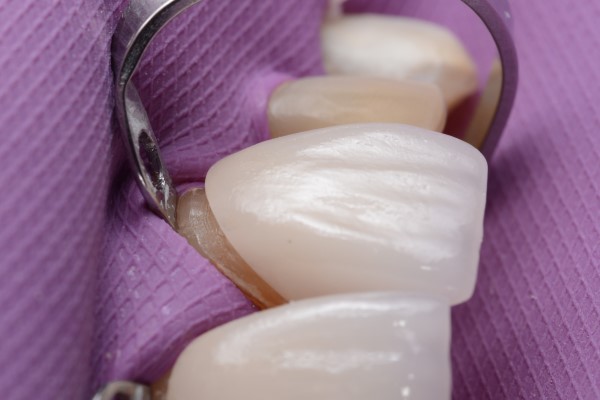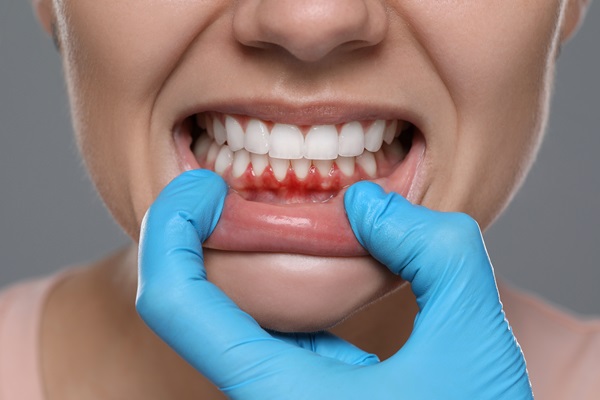Can Gum Disease Be Prevented?

According to the Centers for Disease Control and Prevention, almost half of the United States population has some form of gum disease by the time they reach the age of 30. The risk increases by age 65, with over 70% of Americans experiencing this issue later in life. While gum disease is very treatable, it cannot always be prevented, depending on the underlying cause. However, there are ways to successfully lower your risks for this condition and enjoy better oral health.
Understanding the cause of gum disease
Gum disease is the result of chronic inflammation of the soft tissues of the mouth. In its early stages, it presents itself as swelling, tenderness, and minor bleeding. However, if left untreated, it will usually progress and lead to the pulling away of the gums from the teeth. This often causes sensitivity and pain, as well as infections, decay, loose teeth, and eventual tooth loss.
The leading cause of gum inflammation is the buildup of plaque and bacteria from food particles. Over time, this buildup hardens into tartar, which can only be removed by a dental professional. In more severe cases, the tartar can develop below the gum line, resulting in serious periodontal issues.
Most of the time, bacterial and tartar buildup are caused by a lack of proper brushing, flossing, and professional cleaning. This eventually leads to gum disease. However, some underlying medical or genetic conditions can increase the risks, including:
- Pregnancy
- Diabetes
- Autoimmune conditions
- Hormonal changes
- Dry mouth
Those who have a higher risk for developing periodontal issues should take steps to prioritize their oral health and prevent complications.
Lowering your risks for gum disease
While there are no guarantees for completely preventing gum disease, you can significantly lower your risks and reduce the severity of symptoms by developing healthy habits. Small changes and simple positive practices can make a big difference.
Maintain good dental hygiene
Daily brushing is imperative for healthy teeth and gums, but flossing is especially important. Flossing limits tartar buildup between teeth and improves periodontal health. Using a mouth rinse to kill harmful bacteria can also help keep gum tissues healthy and strong.
See a dentist on a regular basis
While daily dental hygiene is critical, it is not enough to remove tartar altogether. Seeing a dentist at least twice a year ensures that this is removed to help prevent decay and the development of gum disease. Patients who have been diagnosed with periodontal issues may need to see a dentist more often for cleanings.
Focus on your overall health
Some conditions that increase the risks for gum disease, such as high stress and type-2 diabetes, are often preventable. Prioritize good health to avoid these unnecessary risks. Limit alcohol consumption and do not smoke or use tobacco since these can also increase your chances of developing gum disease.
Conclusion
Gum disease is a serious and widespread dental issue. It can lead to serious complications over time, including tooth loss. Fortunately, you can lower your risks and diminish symptoms with proper care and good habits.
Request an appointment here: https://www.gearydental.com or call Geary Dental Center at 4157021310 for an appointment in our San Francisco office.
Check out what others are saying about our dental services on Yelp: Gum Disease in San Francisco, CA.
Recent Posts
Gum disease treatment addresses the root source of the disease and halts the ramifications. Gum disease, or periodontal disease, is a common condition that damages the gums and the structures that support the teeth. If left untreated, it can cause serious problems, including tooth loss. The good news is that if caught early, these treatments…
Many individuals are familiar with gum disease. What may be unknown, however, is the relationship of diabetes to problems with the gums. Diabetes is the result of multiple diseases within the body that accumulate from too much sugar in the bloodstream. Sugar often becomes the culprit that is responsible for an individual's gum disease. Continue…
When people experience cavities, the resulting pain can interfere with eating and flare up when the cavity comes in contact with hot or cold foods. A laser dentist can assist with repairing cavities depending on their severity and in a way that reduces the pain typically associated with such a procedure. Those who want to…
Dental veneers have become an increasingly popular choice for patients looking to improve the appearance of their smiles. A veneer can enhance the color and shape of your teeth, providing a more uniform and aesthetically pleasing smile. However, they are not a one-size-fits-all solution; certain factors determine whether someone is a good candidate. Patients should…


